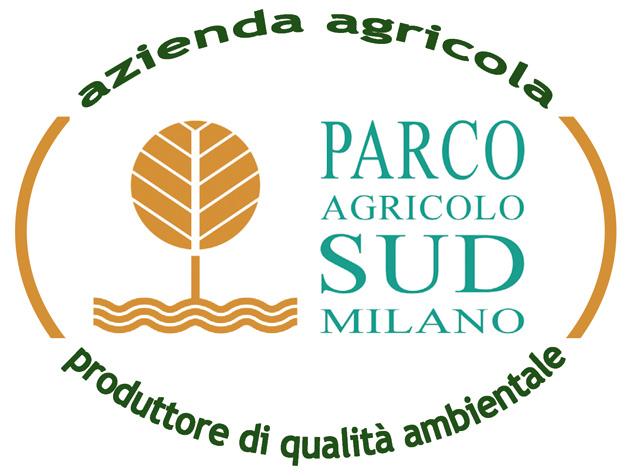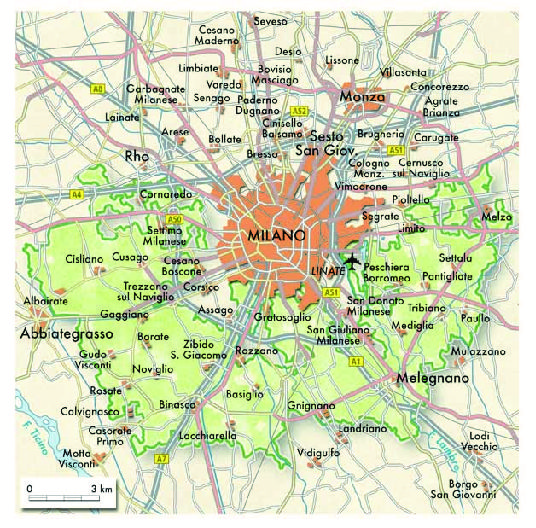Case Study
Parco agricolo sud Milano: best practices for peri-urban agriculture
Contact name
Maria Pia Sparla
Institution name
Parco Agricolo Sud Milano ("Rural Park South Milan")
Region & country
Lombardy - Italy
Summary
The Parco Agricolo Sud Milano was established in 1990 and it is identified as an agricultural park at the metropolitan belt, its area (47,000 hectares) consists almost all (37,000 ha) in agricultural lands.
In this area is of particular importance peri-urban agriculture is an element that allows practicing soil conservation, but also food production.
The demand from citizens for “Km 0” food is increasing and peri-urban agriculture can well meet this needs. In the context of the agricultural functions, several projects have been developed through direct dialogue between the institution, farmers, and representatives of agricultural unions.
Some examples of this policy are the “Environmental Quality Brand” and “the earth market.”

Earth Market
Photo by: archive Parco Agricolo Sud Milano

Environmental Quality Label

Typical farm in the Parco Agricolo Sud Milano
Photo by: archive Parco Agricolo Sud Milano

Map of the Park
Image by: Parco Agricolo Sud Milano
Background of the project
The park’s agricultural reality, before the institutional paths of valorisation of agricultural companies and products, was typically intensive agriculture.
Of the 900 farms in the park, only one part is active in respect to the good practices reported.
The success of farms that have undertaken the path of multi-functionality over time are giving very good results, involving even those who only produce monocultures.
- The greatest needs are related to the path of dialogue and promotion of each farm, with the need for a continuous relationship between institution and farm;
- Sensitize each farm about the issues of environmental sustainability, promote their actions and their products;
- Make it clear that the new addresses of multifunctionality are able to add value to the each farm, which therefore are able to improve their economic capacity.
Solution and actions taken
The solutions undertaken have seen the park busy for a very long period in direct meetings with farms and farmers’ unions. Technicians launched a continuous process of knowledge of each need collected in order to drive the farms to new guidelines. It has also been tried to create a new relationship between town and country, to disseminate the services and products offered, through the publication of a guide to farms very popular by the public (free distribution of 10,000 copies /year).
For the creation of “Environmental Quality Label”, the farms have voluntarily acceded with a sharing of all project phases. The farms in this path are committed to carrying out:
- Development and protection of agricultural feature of the Park;
- Land conservation;
- Enhancement of the landscape;
- The ecological balance of the area metropolitan;
- Enhancement of short chain;
- Food safety.
The park is committed to promoting their actions through the project “Earth Market”
Other institutions or parties involved
For both projects it was crucial the direct involvement of farms and farmers’ unions.
In the specific case of the earth market, the Slow Food organization was also involved, as subject creator of the “Earth Markets”.
The citizens have been involved with a large communication campaign explaining the actions of farms, such as products, and trying to establish a new relationship between town and country.
Results
- Improved farming practices, with greater commitment to environmental sustainability;
- Increased recognizability of the farms from consumers;
- Dissemination of multifunctionality in farms with an increase of farm income;
- Citizens visit farms for shopping but also to learn about the park and appreciate the environment and agricultural landscape;
- Many consumers frequent the earth market where are also developed environmental education activities aimed at knowledge of the park’s topics.
Challenges
- To involve farms and talk to them explaining that the development of the project actions on their part would have facilitated the development of positive factors that would bring a greater sustainability in their farms not only at environmental level but also at the economic level;
- Moreover, it would have allowed a rediscovery by citizens of a high-quality product reservoir next to the city through the activation of “Km 0” supply chains.
Lessons learned
- The development of these projects leads us to say that the sharing of the project with stakeholders is critical to have good results;
- The projects have also enabled the development of collaborative networks between farms and allowed the park to have a greater recognition among its users, establishing a stable connection with the city.
Other resources
-
Presentation of the Parco Agricolo Sud Milano
http://www.cittametropolitana.mi.it/parco_agricolo_sud_milano/vivere_il_parco/pubblicazioni/dvd.html
Contact name
Maria Pia Sparla
Institution name
Parco Agricolo Sud Milano ("Rural Park South Milan")
Website(s)
